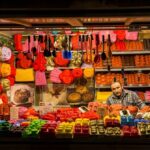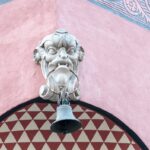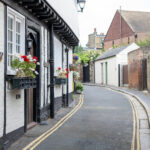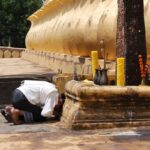Beirut
Beirut is Lebanon’s capital and largest city, located on the eastern shore of the Mediterranean Sea in Western Asia. Here are some key points about Beirut:
1. History: Beirut has a long and diverse history that dates back thousands of years. Various civilizations, including Phoenicians, Romans, Arabs, and Ottomans, inhabited it.
2. Cultural and Economic Hub: Beirut has historically been a cultural and economic hub in the Middle East. It was often referred to as the “Paris of the Middle East” for its vibrant cultural scene and cosmopolitan atmosphere.
3. Civil War: Beirut went through a devastating civil war that lasted from 1975 to 1990. The war caused extensive damage to the city’s infrastructure and left lasting social and political impacts.
4. Reconstruction: Since the end of the civil war, Beirut has undergone significant reconstruction efforts. The city has worked to rebuild and revitalize its urban areas, with new developments, commercial centers, and cultural institutions.
5. Diverse Architecture: Beirut features a mix of architectural styles reflecting its historical and cultural diversity. You can find ancient Roman ruins, Ottoman-era buildings, and modern skyscrapers in different parts of the city.
6. Cultural Scene: Beirut is known for its vibrant arts and cultural scene, with numerous galleries, theaters, and music venues. The city hosts various cultural events, festivals, and exhibitions throughout the year.
7. Geopolitical Challenges: Lebanon, including Beirut, has faced various geopolitical challenges, including conflicts with neighboring countries and internal political tensions. These challenges have had economic and social implications for the city.
8. Port of Beirut: The Port of Beirut is a key economic and trade gateway for Lebanon. In August 2020, a massive explosion occurred at the port, causing widespread damage and adding to the city’s challenges.
9. Language and Religion: Arabic is the official language in Beirut, and the majority of the population is Arabic-speaking. The city is also characterized by religious diversity, with a mix of Christian and Muslim communities.
Despite the challenges it has faced, Beirut remains a resilient city with a rich cultural heritage and a dynamic population. The city continues to play a crucial role in the region’s history, politics, and economy.
I have had just two short visits to Beirut. One with a hotel sea view (2011) and the other with a view from the back of the hotel (2019). In 2011, the firm sent a Bentley with bulletproof windows to pick me up from the airport. I took a regular taxi back to the airport.






Leave a comment